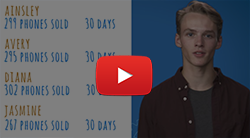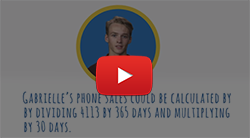Provincial Graduation Numeracy Assessment (GNA)
About the GNA
The Graduation Numeracy Assessment (GNA) is a new provincial assessment written in Grade 10. It is a graduation requirement.
The GNA is based on mathematical concepts learned across multiple subjects from kindergarten to Grade 10, with an emphasis on K–9.
It requires students to solve problems by using the five numeracy processes (different ways of thinking and working): interpret, apply, solve, analyze and communicate. The numeracy processes are described in the pre-assessment activities.
The assessment is delivered online and has three essential components:
Common component
24 computer-scored questions, completed online by all students.
Student-choice component
Two written-response questions completed on paper. These are deeper questions that require students to present their solutions in context and provide detailed explanations to justify their thinking. These questions are based on the information and work the student will have completed earlier in the common component. Students pick 2 of 4 possible questions and take their analysis deeper.
Self-reflection component
These questions ask the student to reflect on their experience with the assessment. The process of reflection becomes part of their learning. This portion is completed online and is not marked.
Pre-assessment Activities
The following pre-assessment activities have been developed to help students prepare for the Graduation Numeracy Assessment.
The documents and videos below are based on a situation called Giving out Bonuses, in which the student has to imagine they are a store manager who must decide how to distribute bonuses to employees.
Work books
These samples are based on a situation called Giving out Bonuses, in which the student has to imagine they are a store manager who must decide how to distribute bonuses to employees.
- Sample Situation and Questions – Giving out Bonuses (PDF)
- Numeracy Processes Collaborative Learning Guide (PDF)
This guide provides suggestions on how students can work through problems and develop their numeracy using the five numeracy processes: interpret, apply, solve, analyze and communicate. It is based on the Giving out Bonuses sample questions above. Students can work by themselves or collaborate with peers.
Video
These videos are based on the Giving out Bonuses situation. They explain how to use the five numeracy processes (ways of thinking and working) to solve questions in the Graduation Numeracy Assessment.
Parent & Guardians Brochure
Additional Resources
Sample GNA
Contact information
If you have any questions, please contact Student Certification






